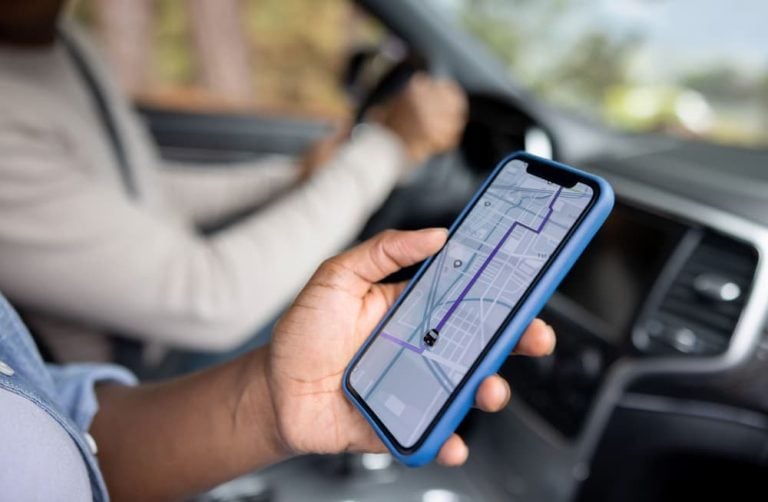McDivitt Law Firm attorneys discuss how something like this could even have occurred
Like you, we are numb as we try to process the devastating collision that took place on April 25, 2019 on Interstate 70 near Colorado Mills. In our line of work, we see the tragic consequences of negligent and reckless decisions on our roads daily, but we will never be immune from the shock and heartache that attends such a horrific and avoidable collision like that one that has rocked our entire community.
This fatal collision is a horrific reminder of how dangerous our roads can be. According to authorities, it appears a semi-truck driver, hauling an entire flatbed full of cut logs, lost control as he drove at a high rate of speed into the backs of cars that were stopped in traffic. More than two dozen vehicles were ensnarled in the inferno that claimed the lives of at least four people, injured multiple others, and tore apart countless families.
We came into work today struggling to determine how we can help people in our community better understand how something like this could have occurred. Something like this should NEVER have occurred, but unfortunately, semi-truck-related collisions happen more often than they should, and we thought that perhaps explaining what can cause these events to occur might provide some answers to questions people may be waking up with today.
Collisions Involving Semi-trucks are Usually Even More Catastrophic
For obvious reasons, collisions involving semi-trucks are usually even more catastrophic due to the sheer size and weight of the vehicles involved, and the speeds at which they are moving. When a catastrophic collision involving a semi takes place, in order to understand it from a legal perspective attorneys, engineers, and investigators often have to work backward to determine what series of events transpired and how the collision could have been prevented. We start with questions like: Was the driver pressured by the employer? Was there an equipment failure that could have been prevented by routine inspections? Did someone cut corners to try to get a delivery done by a certain time? Critically… did someone put profits over people?
There are rules that trucking companies must follow to ensure that their trucks and drivers are held to standards which make our roads safer. For example, drivers can only work 14-hour shifts at a time and they may only drive for 11 consecutive hours during that shift. A rule like this is meant to prevent drowsy driving, which can be as equally dangerous as driving under the influence of alcohol or drugs. Furthermore, the trucks themselves must be regularly inspected and maintained to reduce the amount of possible accidents caused by equipment failure. Click here for more trucking rules, FAQs and general information about trucking collisions.
In the accident that occurred on April 25, 2019, the preliminary reporting indicates that drugs and alcohol were not a factor. The driver is claiming his brakes failed. That is just the start of the analysis. The unfortunate truth is that some trucking accidents are due to the negligent and sometimes reckless ways that certain companies operate their fleets and manage their drivers. While this is not an indictment on the entire trucking industry, or drivers as a whole (most of whom are good stewards of the roads the occupy), there are some who cut corners and break the rules in order to save time and make more money. For example, rushing drivers to get to the destination more quickly or passing up routine maintenance on the truck to save money are just some of the reasons we see semis causing fatal collisions.
In this case, even if there was a mechanical flaw, the driver could still have some blame if he didn’t follow cautionary signs, for example signs requiring trucks to slow down because of the particular grade. Although this piece of the investigation is ongoing and we are unsure exactly what the cause for the collision was, we take bits and pieces of information like this to put together possible situations on how this collision could have been prevented. Not only is this part of the investigation crucial in holding the responsible parties accountable, but also plays a part in helping to prevent similar tragedies in the future.
Committed to Uncovering Why Tragedies Like This Happen
Several of us at McDivitt Law Firm sat down for a discussion about what took place. For us, it was a chance to try to process the “how could this happen” element of this tragedy. There is no way to truly make sense of something as senseless as this, and that is one of the hardest things that our community is going to have to deal with. We are dealing with the same emotions as so many in our community, and like you we are trying to search for answers. We drive these same roads and have the same fears about something out of our control happening. Our discussion today was an attempt at trying to control at least some part of the emotional responses we are each experiencing. Most significantly, though, for those directly impacted, there are no words that ease the pain and hurt, and our hearts go out to each and every one of them. What we can offer is our unwavering commitment to uncovering why tragedies like this happen, holding accountable those responsible for robbing people of their lives and futures, and working to make our roads safer.
There are numerous resources in Colorado available to help those who have been impacted by this horrific collision. Particularly, we often recommend Colorado Crisis Services as a starting point for those searching for help. If you are reading this and have other questions about how collisions like this can occur, we are always available to have that conversation with you.
About the Author: David McDivitt – David McDivitt, a nationally recognized trial lawyer, is the Executive Vice President and Chief Operating Officer of McDivitt Law Firm. In addition to managing the day-to-day operations of McDivitt Law Firm, David runs the firm’s litigation and trial group, where he is responsible for both trying and supervising jury trials through verdict.


